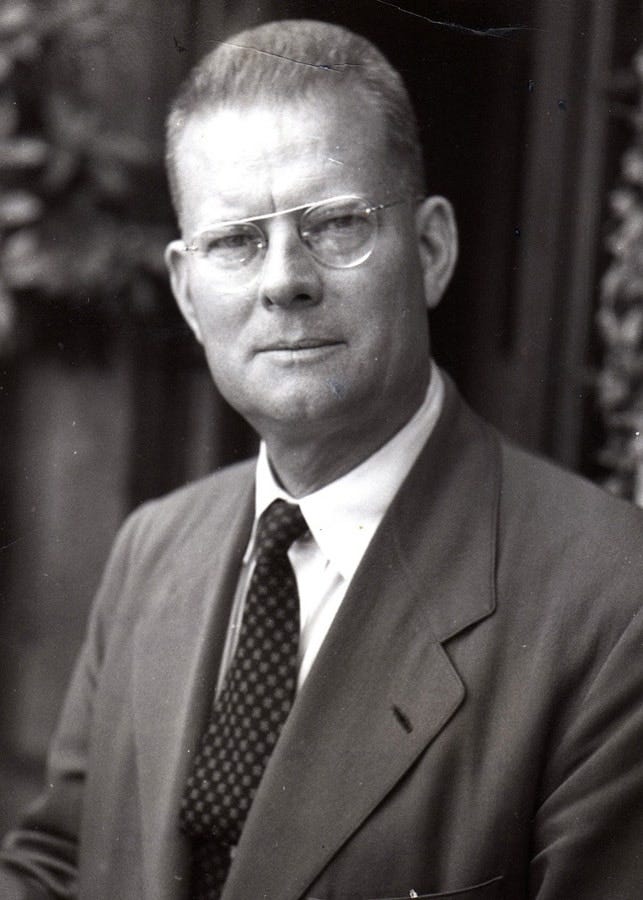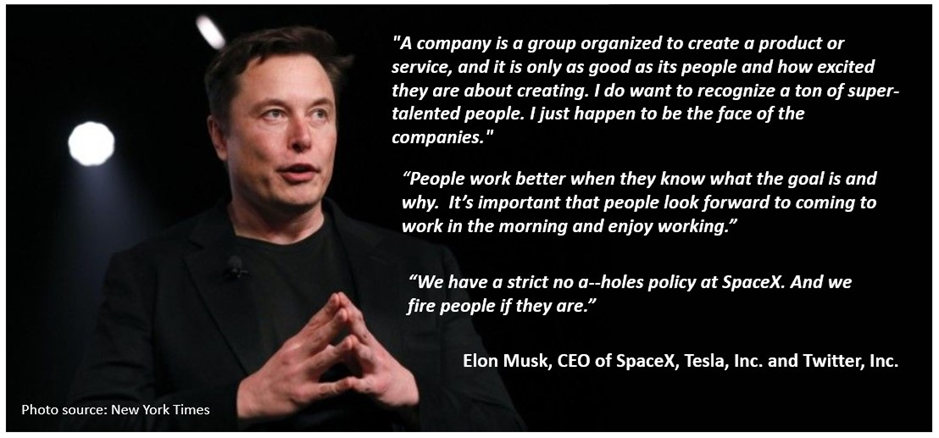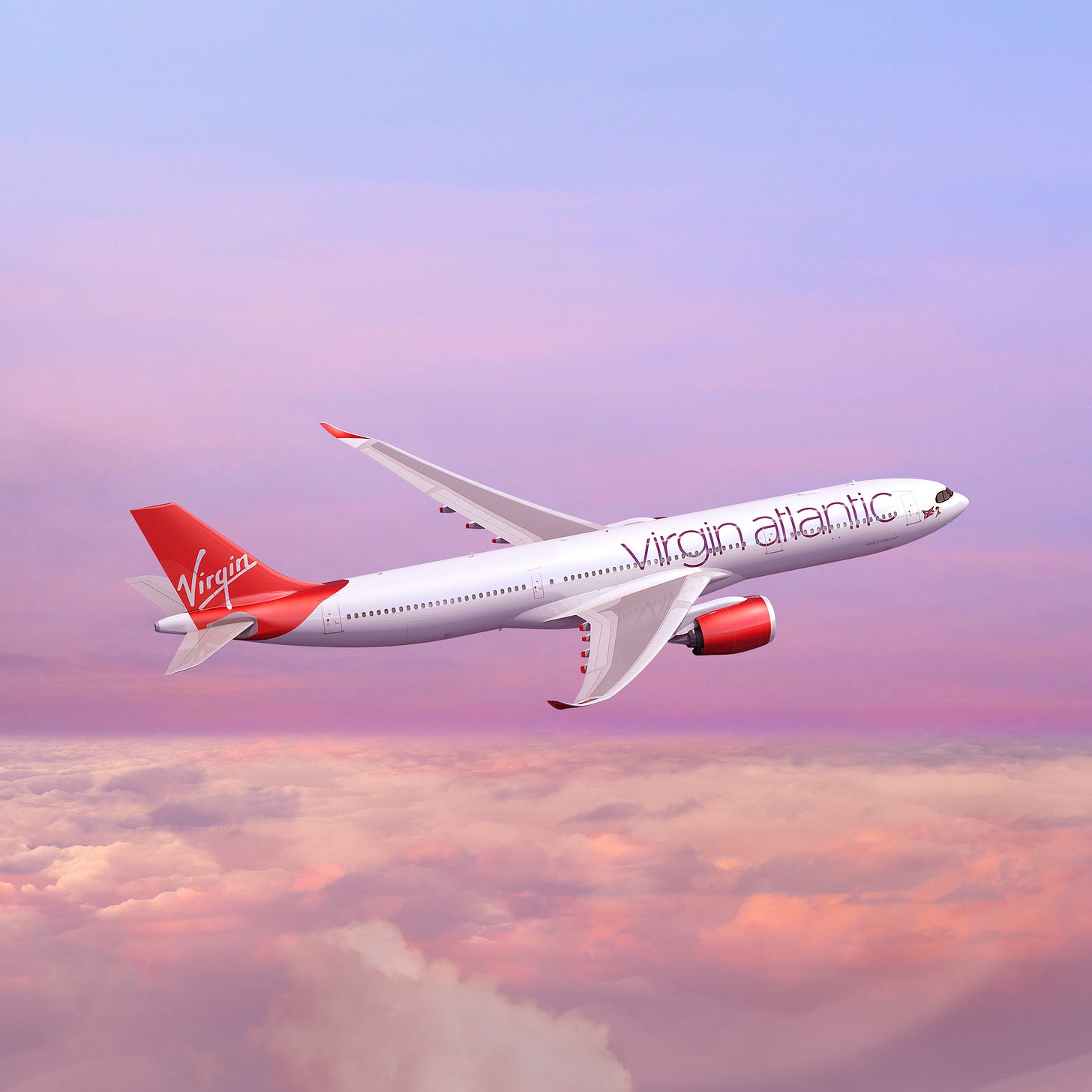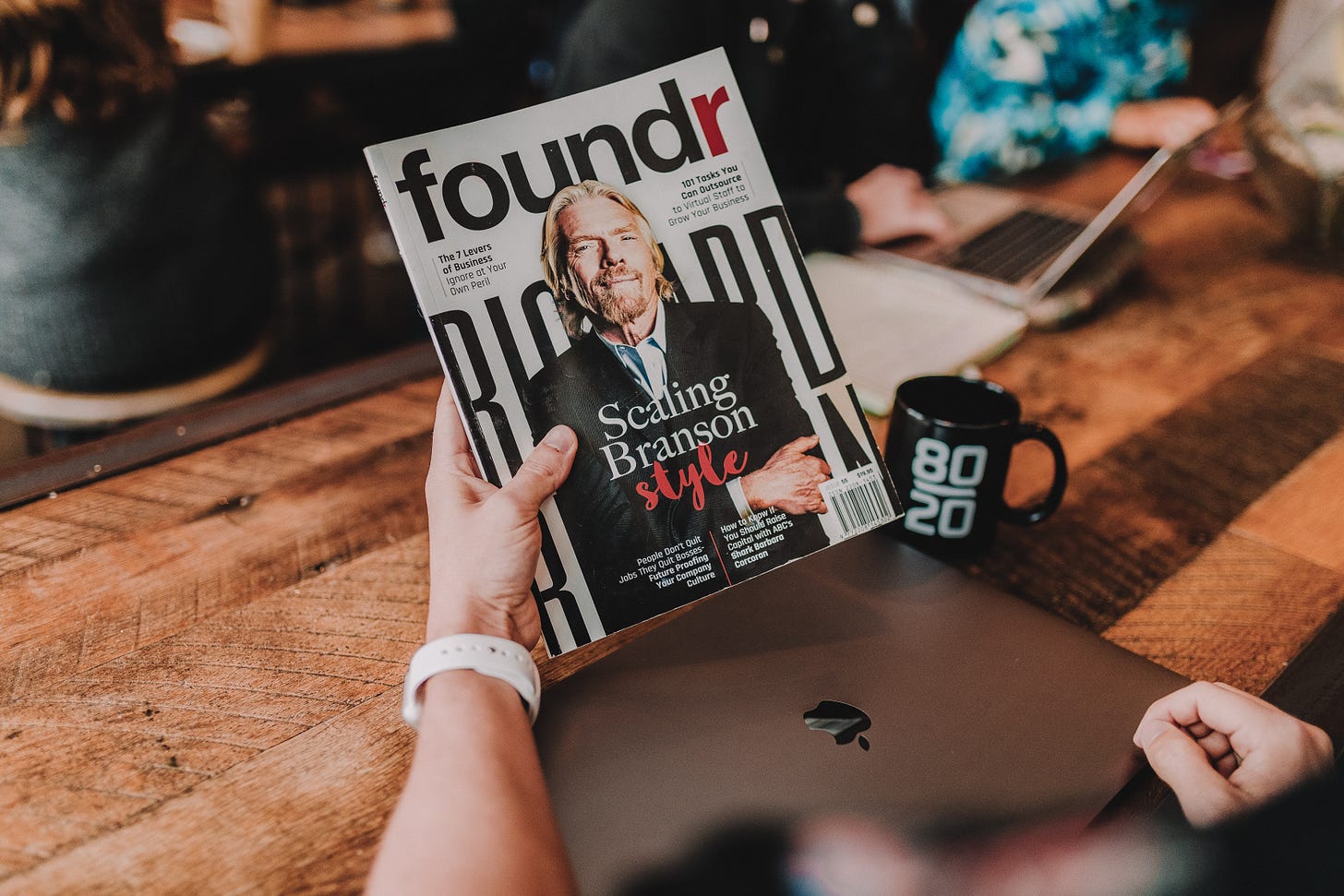Quality management in action: Virgin Atlantic
What do Steve Jobs, Elon Musk, and Richard Branson have in common? A belief that engaged employees who experience joy in work are a company's biggest competitive differentiator.
The greatest waste in America is failure to use the abilities of people.
W. Edwards Deming [1]
In the 1950s, the "Quality Movement," championed by W. Edwards Deming, challenged traditional command-and-control (C&C) management practices that had existed for centuries. He claimed that "eighty-five percent of the reasons for failure are deficiencies in the systems and process rather than the employee," [2] and suggested that the practice of blaming employees for business failure was based on the false premise that workers were "intrinsically lazy and unmotivated and will avoid doing work if any opportunity presents itself…the employee continuously finding new ways to avoid work, and the employer immediately responding with a new control to eradicate that particular work avoidance loophole." [3]
Photo courtesy of The W. Edwards Deming Institute
Deming's opinion of employees was revolutionary in the 1960s. He considered workers to be part of the solution to better quality, not the problem presumed by C&C proponents. In a 1980 NBC interview, Dr. Deming referred to the "storehouse of knowledge they accumulate day to day on the job" and noted that, "Giving people the opportunity to participate in improving the product pays off." Demings' teachings highlighted the employees' importance in a continuous improvement environment while emphasizing the value of a company's system and culture in achieving its objectives.
Style versus system
Some people presume that a Deming-based culture over-emphasizes employee happiness and satisfaction, and that the work environment must be non-demanding and conflict-adverse; a "fun" place to work with accommodating managers and extraordinary benefits. However, a manager's style does not indicate a company's underlying business system.
According to the New York Times, Apple Computer’s co-founder Steve Jobs was notorious for temper tantrums, belligerence, and a "take no prisoners" attitude in quality matters. In some cases, heated arguments ended with tears. Paradoxically, 97% of Apple employees surveyed by the employment site Glassdoor approved of the way Jobs led Apple. [4] The company continues to be one of the best places to work: "Working at Apple means you are working at one of the best companies in the world [because] we create innovative products that thrill our customers and create new product categories – who else can say that?" [5]
Are Apple employees committed to Jobs's vision of quality? As a current employee relates: "I've been in meetings at 4 pm where a dozen people decide we are going to all work all night that night in the office on a problem. No discussion about 'hey, I have to pick up my kids' or 'let me call home first' - everyone nods and agrees, no hesitation."
Elon Musk is another CEO noted for his brusque manner and impolitic statements. After acquiring Twitter, he emailed employees "demanding they commit to working "long hours at high intensity" or receive "three months of severance." A Forbes magazine contributor claimed that "Elon Musk's Leadership Style Bad for Business and Mental Health, Experts Warn." The CEO of Tesla and SpaceX has become a punching bag for journalists and others who dislike his management style.
Outsiders who complain of Musk's bluntness disregard comments from former employees like Dolly Singh, Head of Talent Acquisition at SpaceX. She tells of a failure on SpaceX's third flight:
The mood in the building hung thick with despair; you have to keep in mind that by this point, SpaceX was 6 years old, and many people have been working 70-80+ hours a week, swimming against extremely powerful currents, like difficult barriers in technology, institution, politics, and finance by sheer force of their blood and sweat.
They had all given so much, were mentally and physically exhausted, and really needed a win in order to replenish their spiritual wells and give them the faith to keep following this man up a treacherous mountain that had depleted the hopes and resources of the many others who had come to conquer it.
Elon came out, walked past the press, and addressed the company. He reminded us that success was going to be hard and that we needed to pick ourselves up and dust ourselves off because we had a lot of work to do. Then he said, with as much fortitude and ferocity as he could muster after having been awake for like 20+ hours by this point that, "For my part, I will never give up and I mean never," and that if we stuck with him, we would win.
I think most of us would have followed him into the gates of hell carrying suntan oil after that. It was the most impressive display of leadership that I have ever witnessed. Within moments the energy of the building went from despair and defeat to a massive buzz of determination as people began to focus on moving forward instead of looking back.
Despite their management styles, Jobs and Musk demonstrate Deming's belief that the aim of a management system is to ensure that everyone wins – the customer, the employee, the shareholder, and the community. Dr. Deming's System of Profound Knowledge (SoPK) emphasizes thinking, learning, working, and improving together. Regardless of their management styles, successful CEOs consistently remove systemic causes of failure and help employees do a better job.
The aim of leadership should be to improve the performance of man and machine, to improve quality, to increase output, and simultaneously to bring pride of workmanship to people. Put in a negative way, the aim of leadership is not merely to find and record failures of men, but to remove the causes of failure: to help people to do a better job with less effort.
W. Edwards Deming [6]
Virgin Atlantic
Since Dr. Deming initially presented his revolutionary ideas about quality management and the transformation of organizations, hundreds of businesses, large and small, have opted to become learning organizations following Deming's 14 Points of Management and his unwavering belief in the capabilities of employees.
Photo source: Virgin Atlantic
In 2020, air traffic plunged 60% from 2019 levels, with losses of almost $500 billion, as Covid and subsequent efforts to combat the virus devastated the airline industry. [7] Virgin Atlantic, founded by Sir Richard Branson in 1984, laid off more than 3,500 employees and cut its fleet to 35 planes as the number of passengers fell from 5.9 million in 2019 to 1.1 million in 2021. The company filed for bankruptcy protection before securing $2 billion in financing in 2020. As air traffic recovered, Virgin Atlantic's management team recognized that traditional airline management practices, often pitting management against employees, were ineffective in the modern world.
Virgin Atlantic operates under Deming's Total Quality Management (TQM) philosophy. Branson believes a leader should treat the people working under him as human beings and as essential players in the organization. In each of his companies, he stresses that "a company's employees are its greatest asset, and your people are your product," recognizing that employees are a company's real competitive advantage.
Coming out of the Covid experience, Branson initiated significant changes in the vision and philosophy of Virgin Atlantic. The changes focused on being the employer of choice and introduced new gender-free uniform options, relaxed personal tattoo restrictions, and championed a "Be Yourself" recruiting campaign. Customers also benefited from new planes designed for passenger comfort (inflight bar and wider seats), functionality (Bluetooth, wireless charging stations, and in-flight Wi-Fi), and a gentler impact on the environment.
The company was named "The Best Workplace in the UK" by Newsweek in 2022, and, while its competitors struggled to replace diminished workforces, Virgin Atlantic's last recruitment drive saw 5,000 applicants apply for 400 roles. The applicants included "record numbers of applications" from candidates with ethnically diverse backgrounds, alongside those with disabilities. [8] The business was voted Britain's only Five Star Airline by APEX for the fifth consecutive year in the Official Airline Ratings.
Branson, Musk, and Jobs, though very different people, share Deming's view of leadership:
The most valuable "currency" of any organization is the initiative and creativity of its members. Every leader has the solemn moral responsibility to develop these to the maximum in all his people. This is the leader's highest priority.
W. Edwards Deming
Photo by Austin Distel on Unsplash
Final thoughts
It is not necessary to change. Survival is not mandatory.
W. Edwards Deming
The pace of technological and sociological change today is unprecedented in history. Deming's insights are transforming business as management teams recognize that technological superiority is not sustainable in an era of rapid advancement. Once considered unimportant, employee engagement is essential in today's business environment. The inefficiency of traditional C&C structures makes it painfully clear that the modern workplace necessitates greater employee autonomy and responsibility to deal with increasing complication and complexity of all business functions. Most jobs are more relational and interpersonal than in the past, requiring soft skills like empathy, humor, and tactful communication. Consequently, many workers today find their jobs personally satisfying and even fulfilling.
Companies must take advantage of the opportunities to develop and utilize an engaged workforce. The transformation will only be accomplished by management’s deliberate choice to build knowledge and understanding of its system, define and communicate a clear aim, and engage in a process of continual improvement that benefits all stakeholders.
References
Deming, W.E. Out of the Crisis. MIT Center for Advanced Engine; 2nd edition. January 1, 1988.
Deming, 1988.
McGregor, D. The Human Side of Enterprise. McGraw-Hill. 1960.
Arya, A. 97% of Apple employees think Steve Jobs did a pretty good job. The Next Web (TNW) Newsletter. August 25, 2011.
Leon, M. Why Apple, Google, and Bain & Company Have Made Best Places to Work Every Year. Glassdoor for Employers website. December 17, 2017.
Deming, 1988.
Staff. Air travel down 60 percent, as airline industry losses top $370 billion: ICAO. UN News. January 15, 2021.
Thackray, L. Virgin Atlantic job applications double after end to gendered uniforms. The Independent US Edition. November 3, 2022.









